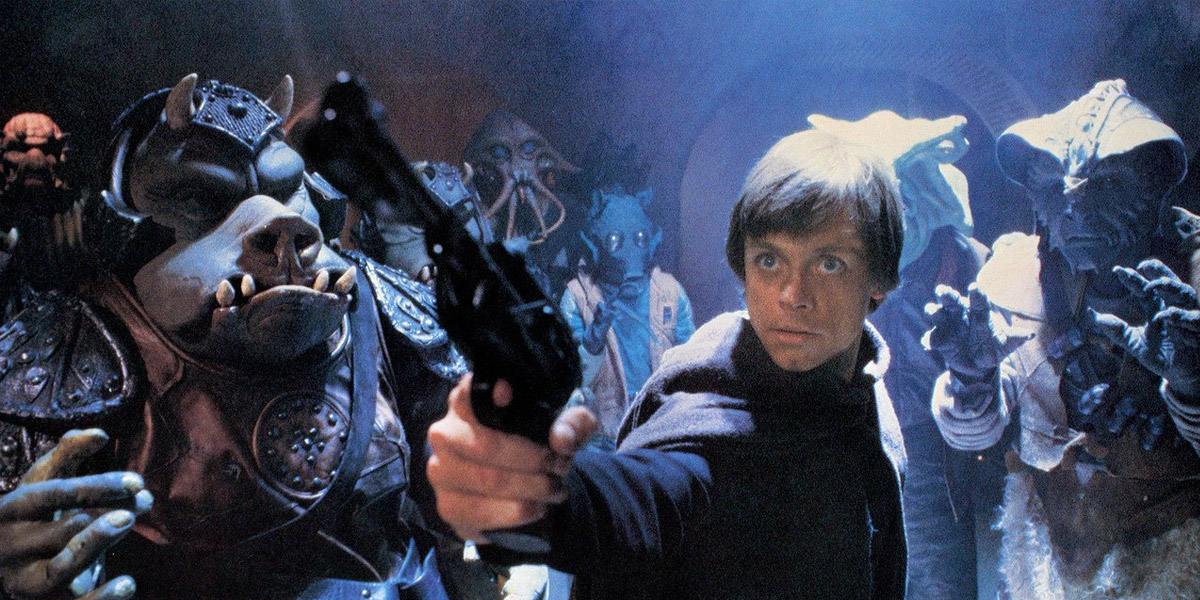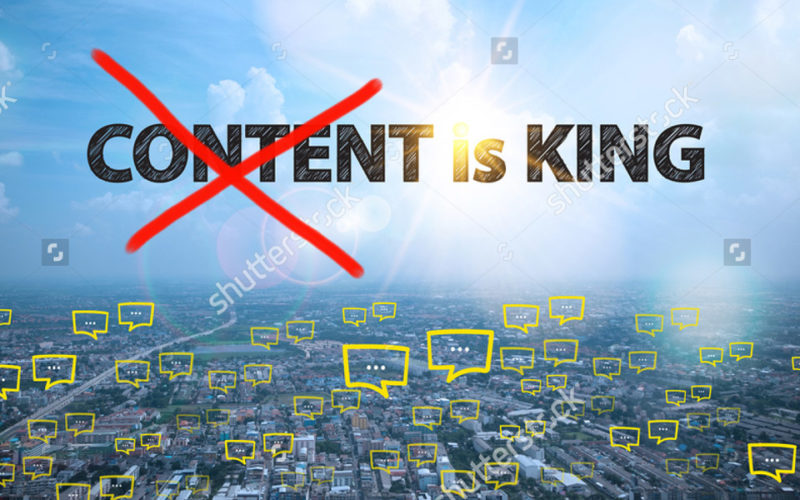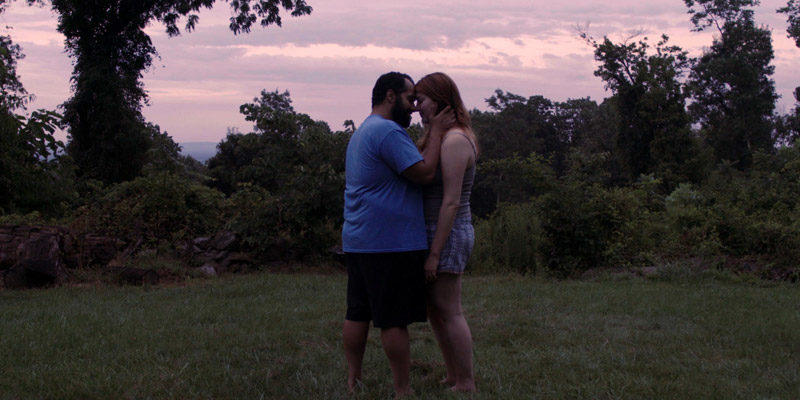I’m well aware that the last thing the internet needs is yet another think piece from some no-name blogger analyzing Star Wars. But, I digress…
After listening to an episode of the “Does Your Favorite Movie Suck?” podcast from Kalen Egan and Travis Sentell (a podcast that shares a similar nostalgic premise as my very own Re-viewed podcast, but admittedly does it much much better), I felt like I needed to write something.
With the help of filmmaker and VFX artist, Daniel Thron, Sentell and Egan took two hours to analyze Return of the Jedi. With Jedi serving as the catalyst, they essentially reverse engineered the current state of movies: this idea that every project exists simply to set up another movie, that there are no complete narratives, that universe building is more important than individual stories, etc. Despite its length, it’s a fascinating and insightful listen. But, I also realize that the average person probably isn’t going to check out a two hour podcast with three film geeks waxing large about the industry.
The point of this blog post is to elucidate why Egan, Sentell, and Thron’s theories about Return of the Jedi are so fascinating. And, also to express the sense of melancholy I currently feel over the crop of films that are hitting the box office. To be up front: much of the ideas I’m about to write about come from Egan, Sentell, and Thron…not me. I’m just the messenger. I’m not smart enough to formulate the majority of this insight on my own.
The Prequels Aren’t the Only Ones that Suck
But, before I go any further, it’s necessary that we agree on the following fact: Return of the Jedi is not a good movie. In fact, it’s a pretty bad movie. And, no, I’m not just talking about the Ewoks (which are pretty much universally hated anyway).
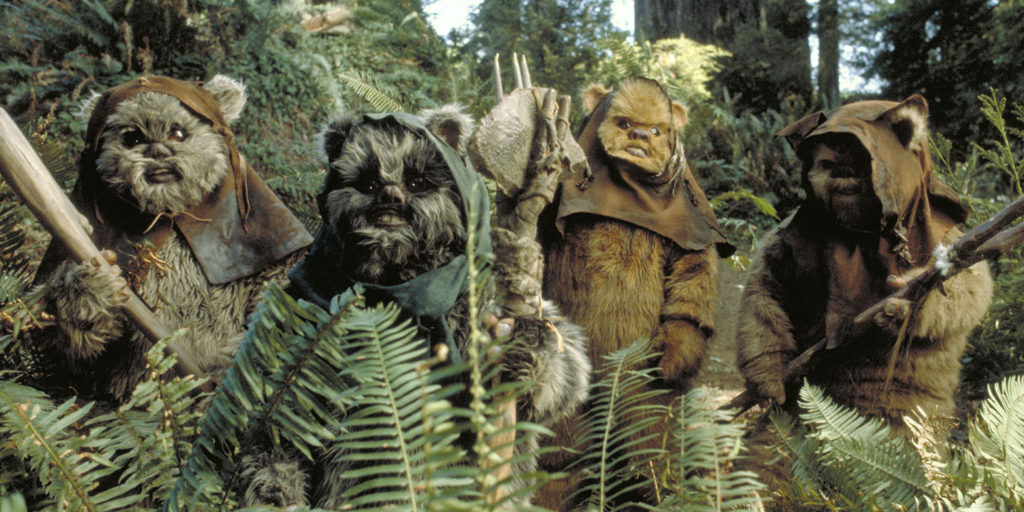
Ewoks! Just think of the toy sales!
If that above paragraph makes you want to abandon ship entirely, let me also say that as I kid I f-cking loved Return of the Jedi. I had the toys. I thought the space battle above Endor looked amazing. The speeder bike chase sequence is dope. And, the light saber action was cool. I won’t deny that Jedi works for your average Star Wars fan. It’s hitting the right notes.
But, it’s also playing the same notes. The film literally recycles the same “big bad” Death Star from the first movie (a sin later committed even more egregiously by the Force Awakens). And, structurally it’s a mess. The first 45 minutes at Jabba’s palace could have easily been handled in a 15 minute sequence, and, even worse, they essentially have no later bearing on the plot whatsoever. The emperor’s plan to lure Luke is overly complex and doesn’t make much sense. The ending Nerf’s Vader. Moreover, the film features some of the worst and most awkward character dialogue of the entire series (and, that’s saying something considering Lucas would eventually pen such gems as “Hold me like you Did On Naboo.”).
In order to understand why Jedi doesn’t work, we need to look at the movie prior and see why it does work. Ain’t no bones about it: Empire Strikes Back is a spectacular film. Cinematically, it’s the best looking of all the Star Wars movies, features the most exciting and dynamic character evolutions, and expands the Star Wars universe with new locales, awesome creatures, and original vehicle designs (remember how amazed you were when you first saw an AT-AT?). More importantly, it ends on a shocking and powerful low note. Luke has gone from wide-eyed idealist to a man who has been broken (both literally and figuratively). Han, who has spent the runtime of two films transforming from a rogue outlaw into a noble hero, ends up punished for his valiant efforts, frozen in carbonite. The rebellion is in shambles. Everything, essentially, has gone to shit. It’s emotional, touching, and tightly written. A perfect set-up to a third act of a great trilogy.
But, then, at the start of the Return of the Jedi, Lucas (and his creative team) essentially blow all their creative collateral. At the beginning of the film, Luke—for all intents and purposes— is “fixed.” Not only is he doing pretty great, he’s a jedi master who has completely accepted his father’s identity. It’s like they deliberately denied the viewer the chance to see the film’s most interesting character transformation.This is bad screenwriting. In any other film, you’d argue that Luke starts the movie at place where he should have ended it. It’s just too easy for everyone, especially Luke, to get where they need to be. Likewise, Vader’s transformation feels oddly rushed, almost like he needed to redeem himself because the plot demands it, not because the movie earns it.
So, what should have happened in Jedi? Obviously, that’s open for debate. But, on the podcast, Thron puts his money where his mouth is and actually presents a very specific vision.
Below I have edited the audio clip from the podcast that features Thron’s pitch. Listen to it with an open mind. It’s worth 8 minutes of your time.
An Alternate Return of the Jedi pitch
Needless to say, I really like Thron’s version. Is it perfect? No. I feel like Luke is convinced to kill the Emperor too easily, but nevertheless, it’s a story with actual character progression. Yes, it’s darker…but it’s also more interesting. It has the guts to make actual story and character choices. Quite simply, there are stakes—real, emotional stakes—with profound consequences. In other words, a sense of conclusion. The true finale to a saga. And, on a more minor note, it also jettisons the plot point that Luke and Leia are siblings, a plot convention that has never made sense to me (and, I sincerely doubt it was something Lucas intended when originally penning A New Hope).
An Alternate Reality
But, “Ivan,” you say, “If Jedi existed as outlined by Thron, that means there wouldn’t be a need for other movies!”
To which I respond: exactly! The title of this article is How Star Wars Should Have Ended. The key word there is ended. Yup…no prequels…no sequels…no semi-prequel sequels.
Let’s bask in this alternate reality a bit. Doesn’t that sound kind of great? We don’t have those terrible prequels, Star Wars hasn’t been commercialized to the point where it holds no meaning. It’s simply a great film series—not a soulless, corporate behemoth designed to print money and sell t-shirts.
But, the new Star Wars movies are great, Ivan!
Are they? Are they really?
Obviously, I haven’t seen Episode 8, but Force Awakens and Rogue One are still just recycling the same cultural collateral, building off our nostalgia rather than creating something new and interesting. That’s obviously not a new or original argument: even amidst the excitement of the Force Awakens’s release critics complained about how it followed New Hope’s template beat for beat.
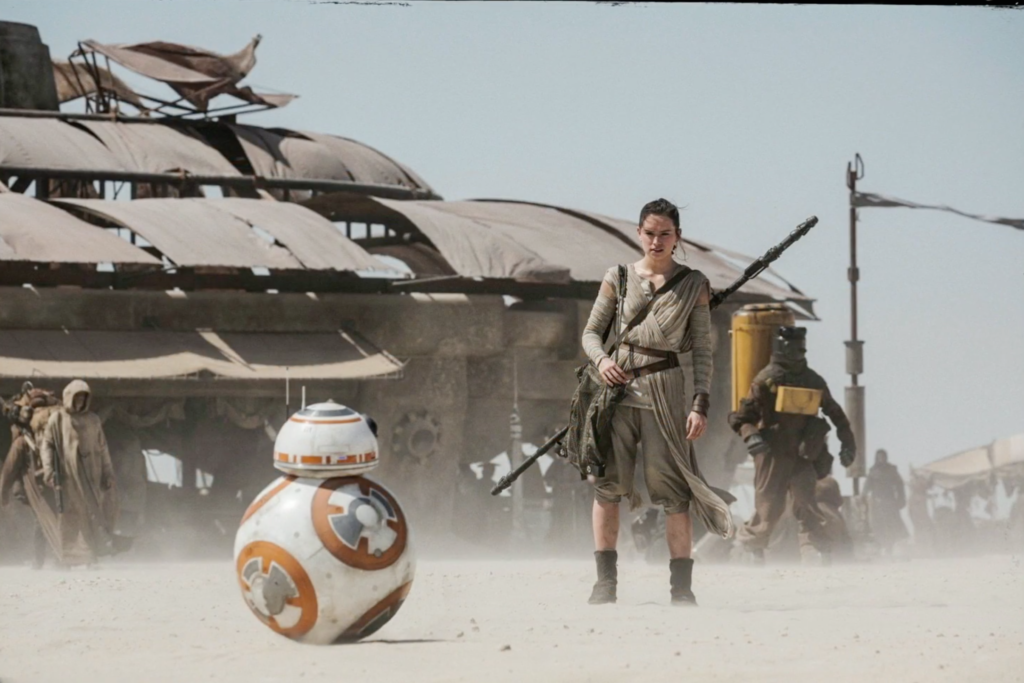
It’s RD-D2…err…BB-8
Now, I don’t mean to fault the technical execution of Rogue One and Awakens—both those movies are incredibly well cast and beautifully made (something you could never say about the prequels), but they are also just feeding us the same meal again and again. To give Lucas some credit, he was at least trying to give us something new with the prequels. It might not have worked (they are boring, poorly written movies), but he was attempting to show us a new side of the Star Wars Universe—a political drama (albeit, a bad one).
The Never Ending Story
So, where do we go from here? Somewhat hypocritically, I’m a fan of the Marvel movies. But, I’ll be the first to admit they all just feel like good episodes of the same TV series. I love the character dynamics in the MCU films (and they are clearly well made), but, they all start to blend together…each movie feels like an excuse to set up the next episode…err…I mean…adventure. It seems as if each movie is subliminally saying “we promise it will get really good next time around.” It’s a never ending cycle. And, we show up, like drug addicts eager for our next fix.
Isn’t that kind of sad? How nothing ever has a sense of finality? How every series now exists in a permanent realm of “mid-story”? Granted, like soap operas, comic books have been doing this for decades—they are a medium defined by mid-story. But, that’s not what movies are. Or, more to the point, it’s not why I fell in love with movies.
I guess what this all boils down to is the fact that I miss traditional movie storytelling, or at the very least, I miss how movies would feel satisfying in their payoff. I miss structure. I miss complete sentences. I love TV as much as the next guy (and this is a very good time for loving TV), but even the “Golden Age of Television” is a victim of the same problem. Everything is just set-up for a payoff that may not ultimately come. For instance, I was really digging Netflix’s 13 Reasons Why. And, then, instead of ending everything with a period (which it easily could have as it’s based on a book), it added a few ellipses in there—hints and threads that will inevitably take it to a second season.
Take a look at Jurassic Park: what I consider to be the best blockbuster ever made. That movie ends with resounding finality. It feels like a complete thought. There is no fucking dumb “after credits” sequence that teases an already planned sequel. It tells a great, entertaining story with interesting characters—drops the mic—and gets out.
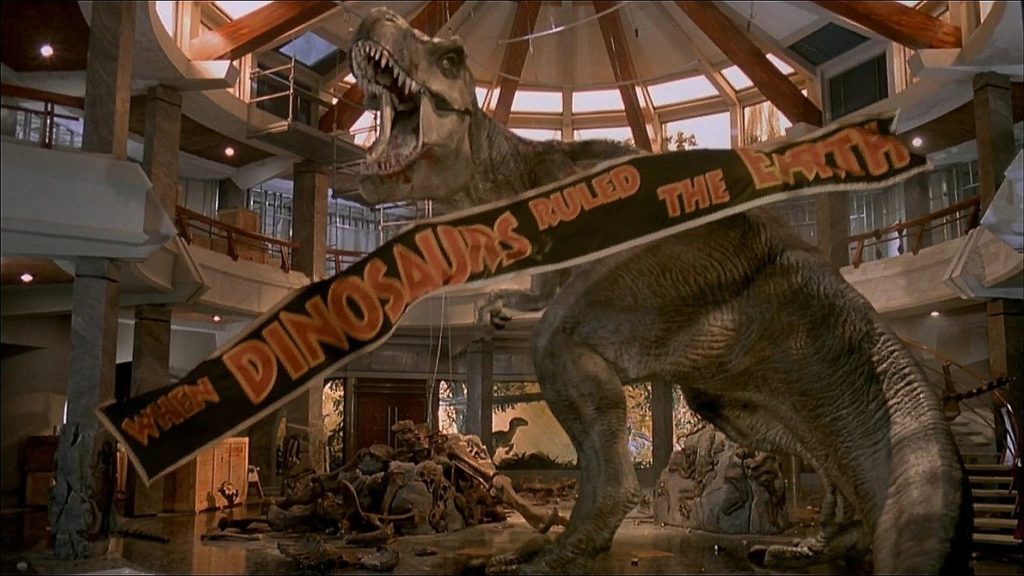
Now THAT’s an ending!
And, yet, now we have three horrible sequels to Jurassic Park (with a fourth on the way!). It’s like we as a collective audience can’t accept when things are over, even when the text itself states it should be. Instead, we ask for the same thing over and over again until the original thing has lost what made it magical to begin with. We overeat until we puke.
I think the thing I find most fascinating about Thron’s hypothetical re-do—even if I don’t agree with all its specific plot machinations—is that with Jedi, Star Wars had a chance to make a complete thought. Based on his later not-so subtle passive aggressive grumblings, I think this is what Lucas wanted.
Instead, the film sold its soul to become something “more powerful than you can possibly imagine.” Maybe this was intentional…maybe it wasn’t. But, considering there will be a new Star Wars film in theaters every year for the foreseeable future, it’s something we will be able to ponder for a long, long time in a galaxy not so far way.

